
The Province of Upper Canada was a part of British Canada established in 1791 by the Kingdom of Great Britain, to govern the central third of the lands in British North America, formerly part of the Province of Quebec since 1763. Upper Canada included all of modern-day Southern Ontario and all those areas of Northern Ontario in the Pays d'en Haut which had formed part of New France, essentially the watersheds of the Ottawa River or Lakes Huron and Superior, excluding any lands within the watershed of Hudson Bay. The "upper" prefix in the name reflects its geographic position along the Great Lakes, mostly above the headwaters of the Saint Lawrence River, contrasted with Lower Canada to the northeast.

The Family Compact was a small closed group of men who exercised most of the political, economic and judicial power in Upper Canada from the 1810s to the 1840s. It was the Upper Canadian equivalent of the Château Clique in Lower Canada. It was noted for its conservatism and opposition to democracy.
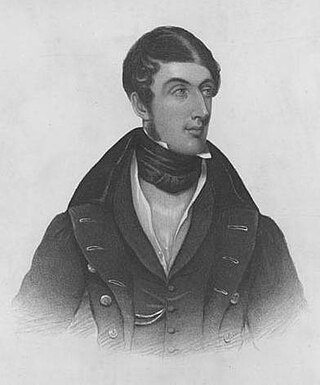
Charles Poulett Thomson, 1st Baron Sydenham, was a British businessman, politician, diplomat and the first Governor General of the united Province of Canada.

John Neilson was a journalist, publisher and politician in Lower Canada. Born in Scotland, he emigrated to Lower Canada in 1791 at age 15, to work in his older brother's publishing company in Quebec City. On his brother's death a few years later, he inherited the business. Neilson became one of the leading publishers and booksellers in Lower Canada and in Upper Canada, selling books in both French and English. He was the editor of the newspaper La Gazette de Québec / The Quebec Gazette, published in French and in English.
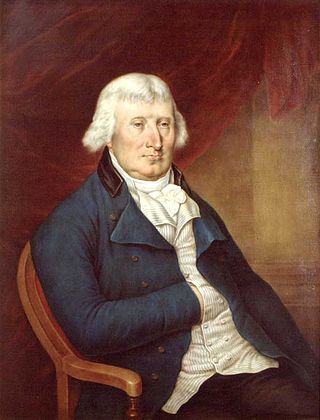
Peter Russell was an Anglo-Irish military officer in the American War of Independence and a government official, politician and judge in Upper Canada.

The Attorney General of Ontario is the chief legal adviser to His Majesty the King in Right of Ontario and, by extension, the Government of Ontario. The Attorney General is a senior member of the Executive Council of Ontario and oversees the Ministry of the Attorney General – the department responsible for the oversight of the justice system in the province of Ontario. The Attorney General is an elected Member of Provincial Parliament who is appointed by the Lieutenant Governor of Ontario on the constitutional advice of the Premier of Ontario.
Stewart Derbishire was the first elected representative for Bytown in the Legislative Assembly of the Province of Canada. Born in England, he was a strong Whig.
George D'Arcy Boulton was a lawyer, judge and political figure in Upper Canada. He was a member of the Family Compact, an oligarchic political and social group which dominated the government of the province.

Sir John Beverley Robinson, 1st Baronet, was a lawyer, judge and political figure in Upper Canada. He was considered the leader of the Family Compact, a group of families which effectively controlled the early government of Upper Canada.
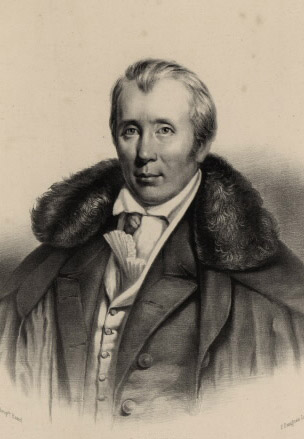
William Warren Baldwin was a medical doctor, businessman, lawyer, judge, architect and reform politician in Upper Canada. He, and his son Robert Baldwin, are recognized for having introduced the concept of "responsible government", the principle of cabinet rule on which Canadian democracy is based.

William Henry Draper was a lawyer, judge, and politician in Upper Canada, later Canada West.

John Hillyard Cameron, was an Ontario lawyer, businessman and political figure. He was a Conservative Member of Parliament representing Peel from 1867 to 1872 and Cardwell from 1872 until his death.
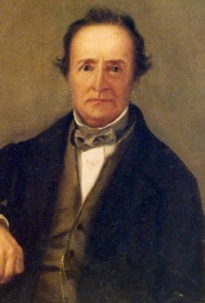
George Strange Boulton was a lawyer and political figure in Upper Canada.
Henry John Boulton, was a lawyer and political figure in Upper Canada and the Province of Canada, as well as Chief Justice of Newfoundland.
Thomas Parke was an architect, builder, journalist and political figure in Upper Canada.
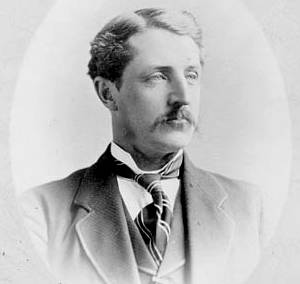
Lt.-Colonel The Hon. Arthur Trefusis Heneage Williams was a Canadian businessman, farmer and political figure. His statue stands in front of the town hall of Port Hope, Ontario.
Samuel Thompson was a Canadian businessman and newspaper editor.

There were five important periods in the history of Canadian newspapers' responsible for the eventual development of the modern newspaper. These are the "Transplant Period" from 1750 to 1800, when printing and newspapers initially came to Canada as publications of government news and proclamations; followed by the "Partisan Period from 1800–1850," when individual printers and editors played a growing role in politics. The "Nation Building Period from 1850–1900," when Canadian editors began the work of establishing a common nationalistic view of Canadian society. The "Modern period" from 1900 to 1980s saw the professionalization of the industry and the growth of chains. "Current history" since the 1990s saw outside interests take over the chains, as they faced new competition from the Internet.

After the American Revolutionary War, U.S. printers were freed of British copyright restrictions and freely reprinted British works. Upper Canadian printers remained bound by British copyright. American presses quickly took the lead in producing cheap editions and eventually the printing of original work.
Durham was an electoral district of the Legislative Assembly of the Parliament of the Province of Canada, in Canada West, on the north shore of Lake Ontario. It was created in 1841, upon the establishment of the Province of Canada by the union of Upper Canada and Lower Canada. Durham was represented by one member in the Legislative Assembly. It was abolished in 1867, upon the creation of Canada and the province of Ontario.













